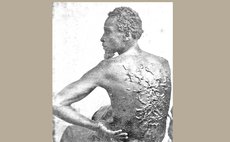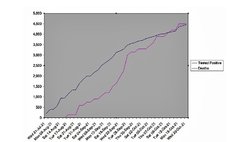Mero: Symbol of a Failed Government and Tourism Philosophy
Mero, in recent years, has become a symbol of an incoherent, failed government and tourism philosophy.
My earliest memories are of Mero, a small village on the west coast. It was a quiet, peaceful village that few people knew existed. The beach was a place for child-centred and family oriented play and leisure, recuperation and healing, and for contemplation; where tourists came to spend a few stress-free hours. People lived and slept peacefully in their beds without fear of noise terrorism.
But the village has now been hijacked by noise gangsters and terrorists and their destructive, life-draining behaviour. Noise gangsters and terrorists bombard the village from several quarters, including from an establishment owned by the former minister of health, and from constant "jams", "raves" and "fetes". This noise terrorism comes hand in hand with excessive alcohol consumption, drug abuse, aggressive and violent behaviour and other forms of anti-social conduct. The physical environment is as polluted as the social one. The intention, it seems, is to create a "noise ghetto" and den of iniquity in this once peaceful haven. These pollutants, on closer examination, reveal a complete devaluation of the residents of Mero, and a slow erosion of their rights, dignity and wellbeing.
The change in the fortunes of this village came about because the beach was discovered in Mero which has become the focus of the government's tourism initiative and a meeting place for noise gangsters and terrorists and their harmful behaviour.
The stressful and debilitating effects of noise terrorism on the mind, body and spirit cannot be overstated. The social problems that arise due to noise terrorism and its ensuing damaging behaviour have not been fully acknowledged. It is no surprise that tragedy is often the result. There have been several violent and tragic incidents in Mero that have not made the headlines, unlike the fatal shooting in Macoucherie.
Mero has been described as a "tourist site" and a "party place", and the activities associated with the culture of noise as bona fide economic activities. The idea that Mero is a tourist and bacchanal spot suggests that tourism is wrongly equated with bacchanal and noise; that noise terrorism in a residential area such as Mero is legitimate and the violation of the law and the constitutional and human rights of its residents are to be condoned; that my wife and I and other residents are to be sacrificed on the altar for tourism's sake; all of which are clear indicators of a distorted and failed government and tourism philosophy and vision.
The economic excuse for noise terrorism is equally unethical. It cannot be moral and Christian for noise terrorists to earn a living by violating the law and subjecting people to mental abuse or violence, socialising children into alcohol and drugs, and violating their human and constitutional rights. There are more imaginative and productive ways of gaining employment and earning a living other than a dependence on noise terrorism. Legitimate employment should be sought by all those who wish to assault the peace of mind and the rights of others.
But the culture of noise and its associated destructive patterns of behaviour are allowed to flourish because noise terrorism is simply a means of keeping people intoxicated with bacchanal in the absence of any legitimate employment opportunities.
Mero, however, is not the only symbol of a bankrupt government and tourism philosophy. There is, for example, a complete failure to capitalise on the natural resources of the country and the revolution in the health and wellness sector as well as an inability to integrate agriculture to the tourism product, as the recent protest in Salisbury demonstrates. The social and economic and other costs of these and other failures are becoming increasingly apparent.
A more coherent, intelligent government and tourism philosophy is necessary in Dominica that empowers citizens and enhances their welfare and dignity, allowing them to thrive and to achieve self-actualisation. In Mero this vision can be accomplished by the creation of a healthier social and physical environment and initiating systems and structures for residents to flourish and tourists to be inspired.
Colton Paul
The Dominica Noise Abatement Association




